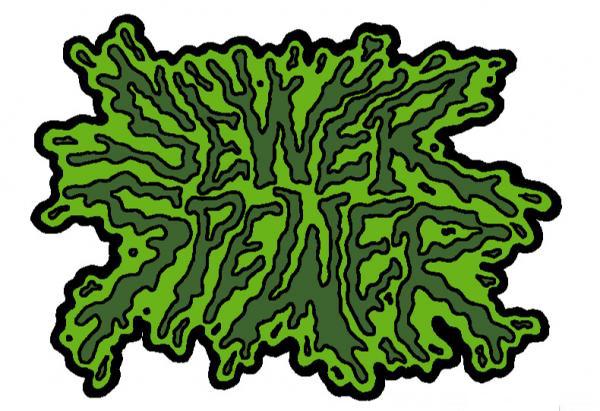How Punk and Metal Crossed Over

So you might be wondering why I’m participating in this year’s Metal March, even if I’m not listed under CJLO’s metal shows. Isn’t Sewer Spewer primarily a punk show? (Follow-up question: what the hell is a Sewer Spewer?) Well, if you ever bothered to listen to my radio show, you would realize that the lines between the punk and metal tunes I play on the air are quite blurred.
Is Nails hardcore punk? Or is it death metal? Who cares! Metal borrowed from punk and punk borrowed from metal to the point where the differences are very subtle (and I’m talking about true punk and metal, none of that poppy crap). It’s all thanks to the efforts of some brave musicians who broke down musical barriers, more than 30 years ago.
Now, before I launch into the history of how punk and metal became one, I need to tell you that I’m not an absolute authority on this subject. I wasn’t even born in the golden era of punk and metal. All I know comes from what I’ve read from Wikipedia pages and rockstar memoirs. You shouldn’t quote me on anything I say.
The only evidence I have of punk and metal being separate entities is on a VHS tape I somehow acquired at a record swap. On this tape, the first part is footage from a Dead Kennedys concert from 1984. The other half is a taping of MuchMusic Pepsi Power Hour from the same era, when glam metal was at the top of the charts (heavy metal’s cringiest period, in my opinion). The segment also included videos from Sammy Hagar’s and Ozzy Osbourne’s solo projects (though Ozzy looked like he had no idea what he was doing). If you compared the look of the members of Dead Kennedys to the members of Poison, you would agree that punk and metal could not be more different. Punks were shaving their heads and rocking ripped jeans, while metalheads were keeping their wavy locks and squeezing into tight spandex pants. Heavy metal bands kept trying to one-up each other in their guitar solos, whereas punks were satisfied with same four-chord structure. Metal bands were singing about cocaine and strippers, with the occasional reference to Satan. Punks were yelling about cops busting them for skateboarding.
But around the same time, bands started looking into each other’s camps and started stealing each other’s ideas. The granddaddies of thrash metal known as Metallica, Slayer and Anthrax were ditching the melodic vocals of heavy metal in favour of the aggressive bark of punk vocals. On the other side, bands like Corrosion of Conformity, Dirty Rotten Imbeciles and Suicidal Tendencies started off punk, but got tired of its simplicity and then mastered the art of shredding solos, thus creating crossover thrash. Very soon, these bands went from playing basement shows to sharing the stage with the thrash metal titans. Later on in the 90’s, Corrosion of Conformity’s Pepper Keenan went down south to become part of the sludge metal family, a swampy blend of Rollins-era Black Flag, grunge fuzz and heavy blues inspired by Black Sabbath.
While this was all happening in the States, across the pond in the UK, a new hybrid was taking form: crust punk. It mixed the anarchistic politics of Crass and Discharge with the bleakness of black metal. Amebix in particular used the war imagery commonly found in black metal. The frontman Rob Miller is now a full-time swordsmith, which Is probably the most metal job anyone can have. Then there was Napalm Death, challenging the concepts of time structure with two-second masterpieces. Extreme Noise Terror were just a bunch of punks who wanted to yell as loud as humanly possible. Their guttural bellows inadvertently gave birth to the grindcore movement. To this day, they deny the accusations of being anything but punk.
If you’ve ever watched Heavy Metal Parking Lot, you might remember that Judas fan wearing zebra print from head to toe, yammering on about how “all that punk shit sucks, it belongs on fucking Mars, man!” I wonder if he’d be at all horrified by the way things turned out (unlikely though, since he probably lives in a safe bubble where he jerks off to the same Iron Maiden record every night). But to those of us actually paying attention, punk and metal eventually crossing over was inevitable, because of the common desire to become faster, louder and harder. Only by dropping the petty squabble between punks and metalheads can we truly achieve what really matters: rocking hard.




